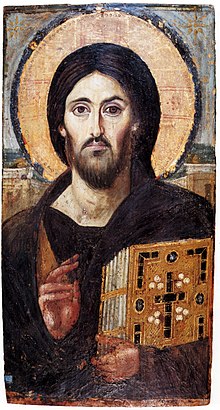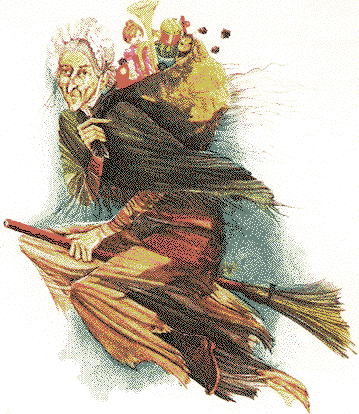Luke
4:14-21
January
24, 2016
Epiphany
3
This is the beginning of Jesus ministry,
the
first thing he does after his baptism,
is to
go into his hometown and read
 | |||||||
| Christ Pantocrator, 6th Century St. Catherine's Monastery, Mt. Sinai |
this
scripture. And Luke found it significant
enough
to put this down for everyone to remember.
It’s
kind an inaugural speech if you will,
a
mission statement for Jesus ministry.
If you
were going to choose
one
thing from the Old Testament to read
to
epitomize Jesus’ ministry what would it be?
Some
might read the story of
Adam
and Eve and the serpent,
maybe
the 10 commandments,
the
story of Moses and the Exodus,
Abraham
and Sarah
a
psalm,
Maybe
we would want to hear
about
forgiveness of our sins
or our
union with God in the after-life.
But Luke, the writer of one of only four gospels
chooses
to highlight this one
that we
read today from Isaiah 61
Jesus reads that he “has been
anointed to
bring good news to the poor.
release to the captives
recovery of sight to the blind,
to let the oppressed go free,
and to proclaim the Year of the
Lord’s Favor.”
That was the scripture reading.
That was the mission statement
for the gospel.
Maybe not what the people were
expecting.
Maybe not what we would expect.
Good news to the poor.
Sight to the blind.
Release to the captives.
Release to the captives.
Help the oppressed go free.
That sounds like something real
is going to happen with Jesus.
That sounds maybe like social
upheaval.
That sounds like some people’s
comfort
might be challenged.
By the way,
the last thing,
the Year of the Lord’s Favor,
isn’t as easy as it sounds.
The
Year of the Lord’s Favor is not just a year
when God proclaims God's love and
favor for us,
It was the year of Jubilee proscribed in Leviticus,
It was the year of Jubilee proscribed in Leviticus,
at the foot of Mount Sinai, and
in Deuteronomy.
This
Year of the Lord’s favor
was something that was to happen
every 50 years,
On the 50th year, all
debts were to be forgiven,
Those people who had to work as
slaves
for other people to pay off their
debts,
were released and those debts
forgiven.
Land
was to be returned to its original owners.
So if some people had accumulated
property
or land because someone else
had to sell it to pay off a debt,
the land was to be returned to
the original owner --
either given back outright or
sold
at a greatly reduced price from its actual worth.
This
was done to prevent a great accumulation
of wealth and land by one portion
of the world
and a great accumulation of debt
on the other.
Every 50 years, money and land
from the more well off,
were in essence, given away to
the poor.
So that each person started off
the same, with a clean slate.
But the most striking
thing about the Year of the Lord's Favor,
is that although it
was told to personally to Moses
by God at the foot of
Mount Sinai
there is no evidence
that it was ever actually done.
People generally believe that it was pretty much ignored,
The religious people
paid attention other Levitical codes
they took them very
literally:
They did the sacrifices,
They washed their
hands at the prescribed time,
they stoned women for
committing adultery
but relieving debt
and giving things back to the poor,
that was pretty much
ignored .
We
can understand that, right?
Christianity has
often forgotten about Jesus inaugural
statement and the
many commands in the bible to
care for the poor,
release the prisoners
care for the
disabled, and let the oppressed go free.
We would rather focus our time on
our personal salvation, our
worship styles,
forgiveness of our
sins (and judgment for others)
and Jesus
guaranteeing our eternal life.
We don’t actually
want God to get involved here,
in our finances, our
wealth, or our comfort.
At Christmas time,
when we
look at that little baby Jesus
in his manger, lying there all
peaceful,
we think of things like the
preciousness of life,
the wonder of children, Jesus is
cute and cuddly,
he fills us with pleasant
thoughts.
But the epiphany realization is that
God's
incarnation into humanity is not all skittles and beer,
not all comfort and cozy.
Incarnation is God coming to this
earth,
Jesus is God's word come
to earth
those passages from Isaiah come
to life.
As well as being a comfort in our
trials and struggle,
God means to get involved in this
world in some really specific ways.
We
understand that God loves us,
We like
to say that God so loved the world.
We like
to say that God loves us just as we are.
And I
believe that is all true.
But God
doesn’t want to keep us and the world
just as
we are,
God
doesn’t want the world to stay the same.
That is
why God gave us Jesus.
God
needs us to change.
God
needs the world to change
Sometimes, maybe, it might be nice if God
would
just stay up in the sky
sitting on a heavenly throne
somewhere far off,
quietly working out my salvation.
It would be decidedly easier for many of us if
It would be decidedly easier for many of us if
God wasn't involved in my here
and now
But that’s not the God we know in
Jesus.
Jesus
is God's word come to earth.
Jesus is God's word put into
action here.
Jesus is the scripture put into
the world and lived out
Absolutely incarnate, and
absolutely a thorn in our side.
Today still the poor are in need of some good news,
the captives are still
imprisoned, the blind still can't see.
The Year of the Lord's Favor
still has not happened 2,000 years later.
Now how could Jesus preach that
the scripture had been fulfilled
in our hearing?
He can,
because Jesus is the living Word
when we
hear Jesus read about the poor,
and the
captives, and the oppressed,
these
words come alive for every new generation.
We know
that he’s talking about the poor today.
the
captives today, the blind today.
And
Jesus talking about it, makes us talk about it too.
- Jesus wants us to talk about the
fact that
one in five children in the US are living with food insecurity.
- He wants us to know that people
with disabilities are
twice as likely to be living in
poverty.
- He wants us to realize that we
have only 5%
of the world’s population and 25% of the world’s incarcerated
people.
-He wants us to know that the
richest 10% controls
2/3 of all of America’s wealth.
- He wants us to be aware that
debt lines the pockets of
the wealthiest corporations, makes
poor people even poorer
and cripples most of the small countries
all over the world
- He wants us to talk about the
fact that one of the poorest cities
in the nation, Flint Michigan,
has had their water supply sacrificed
at the altar of budget cuts and
savings.
Jesus means to be real and
present with us today,
Jesus wants his words to live in
us,
and bug us and take up our time.
Jesus wants to be a thorn in our
side.
And more than that,
Jesus first words of his public
ministry
challenge that and tell us that
he hasn’t come
to save us individually,
privately, apart from another.
But for Jesus, our salvation is
wrapped up
in the lives of others,
the poor, the prisoner, the
disabled, the oppressed.
By the power of our baptism,
we are one with those in most
need all over the world.
Let us hear the word of God new
every day,
Let the word of God be alive in
our world.
Let us be good news to the poor.
Let us give release to the
captives.
Today, let God's word be
fulfilled in our hearing.



